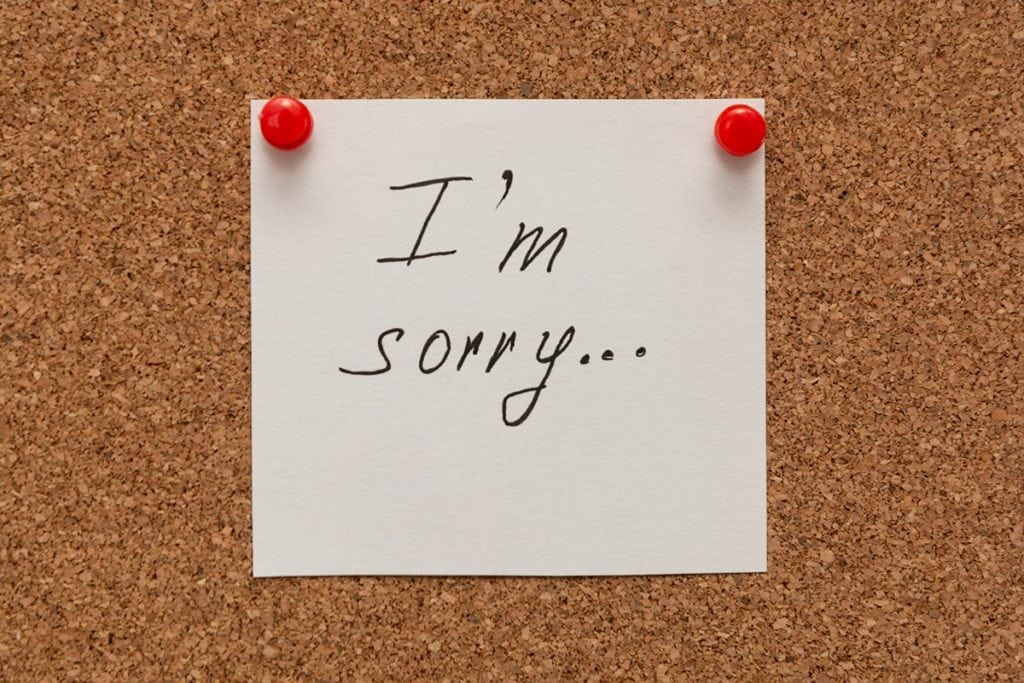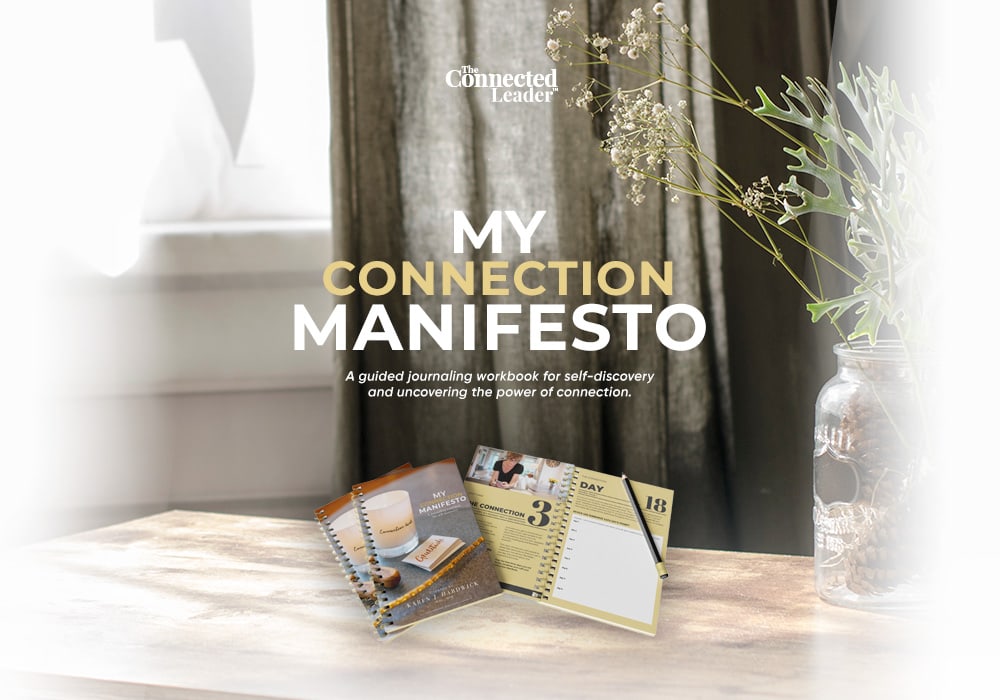And Why It’s Important
Apologies are hard. And often times, quite frankly, the ones we get suck. There are blaming apologies. Excuse-laden apologies. Clueless apologies. There are few, all-in, I-get-what-an-ass-I-was apologies.
Apologizing well is a rare gift, and there’s good news: we can learn to do it, and we should. Heartfelt apologies are one of the cornerstones of healthy relationships, and are at the soul of how we deepen connections, intimacy, and leadership.
I recently had dinner with two executives: successful leaders on top of their games. They talked about how one of them did not give timely feedback, and how that complicated a situation. A true apology was given. And here is what it sounded like:
- I am sorry that by not talking with you sooner, I missed an opportunity to help you sooner.
- I suggest we meet on a more regular basis so this does not happen again.
- I understand that by not having more frequent conversations I negatively impacted you. I don’t want that for you.
On this night in a restaurant, I witnessed two grown men listening deeply, acknowledging a disconnect, exploring what went wrong, and committing to changes that mattered. One honest enough to say “that did not work for me.” One self-aware, humble, and courageous enough to say, “I am sorry and this is what I am going to do to change.”
Apologizing well is a rare gift, and there’s good news: we can learn to do it, and we should.
Here are some apology guidelines:
- Reflect: Hit the pause button, go within, sit with how much your behavior or words hurt someone, and as a result, hurt you.
- Engage: Be vulnerable and demonstrate strength by going to the other person and repairing the wrong.
- Say: ” I am sorry for (be specific). Examples: I am sorry for hurting you when I spread untruths about you, for letting you down when I did not meet the deadline, for betraying you when I said one thing and did another, for losing my temper, etc.).
- Acknowledge: Let the other know you take the impact on them seriously and understand their feelings.
- Make amends: Words are nothing without behaviors to back them up. Let them know what you are going to do differently. Nothing changes if nothing changes. Accept that restoring trust and goodwill takes time and over time behave differently, consistently!
Here are things to avoid:
- “Buts”: There are no buts in an apology. When there is a but, you become an ass. Suck it up, buttercup! You did it. Name it.
- Blame: Do not dance the “but-you” two-step. This is a take on the “but apology” and adds the poison of blame. It sounds like this: “I am sorry but you…”. It then goes into a validation of hurtful behavior by blaming the other person. This is bonafide bat-shit crazy-making.
- Shame: Do not sidestep accountability by inferring there is something wrong with the other person by saying, “I am sorry you feel that way.” This is another example of shaming, blaming bullshit.
- Gaslighting: Do not apologize for things that are not your fault. Do not carry someone else’s load. Some people are wired to convince whoever they can that someone else (namely, you!) caused their unacceptable behavior. Move away from that gaslighting as quickly as you can.
- Guilt: Do not get guilted into believing that healthy boundary setting is something you should apologize for. The only people who get upset at emotionally healthy, spiritually fit, respectful boundaries are those who benefitted from you having none. Keep the bar high and pay attention to where you end and someone else begins.
Apologies clear the air, lighten our souls, and bring people together. By apologizing with courage, you are also healing yourself and deepening your level of consciousness, mindfulness, and self-awareness: this is leadership.


